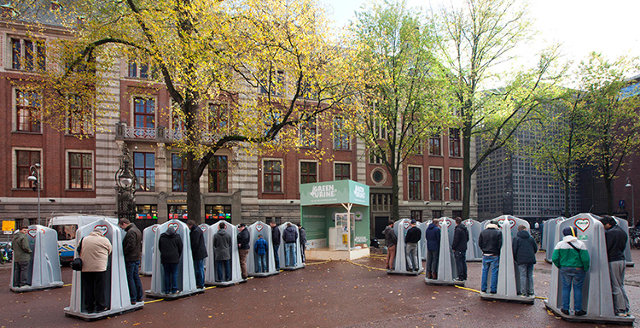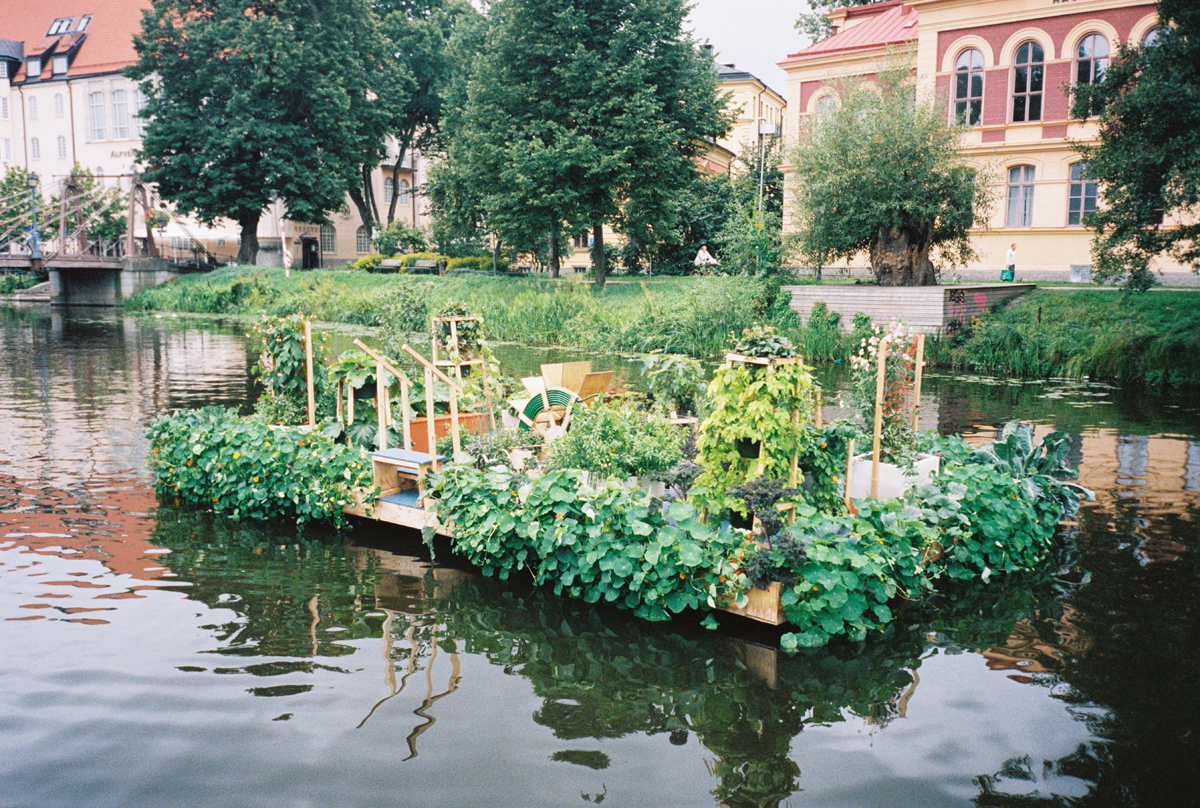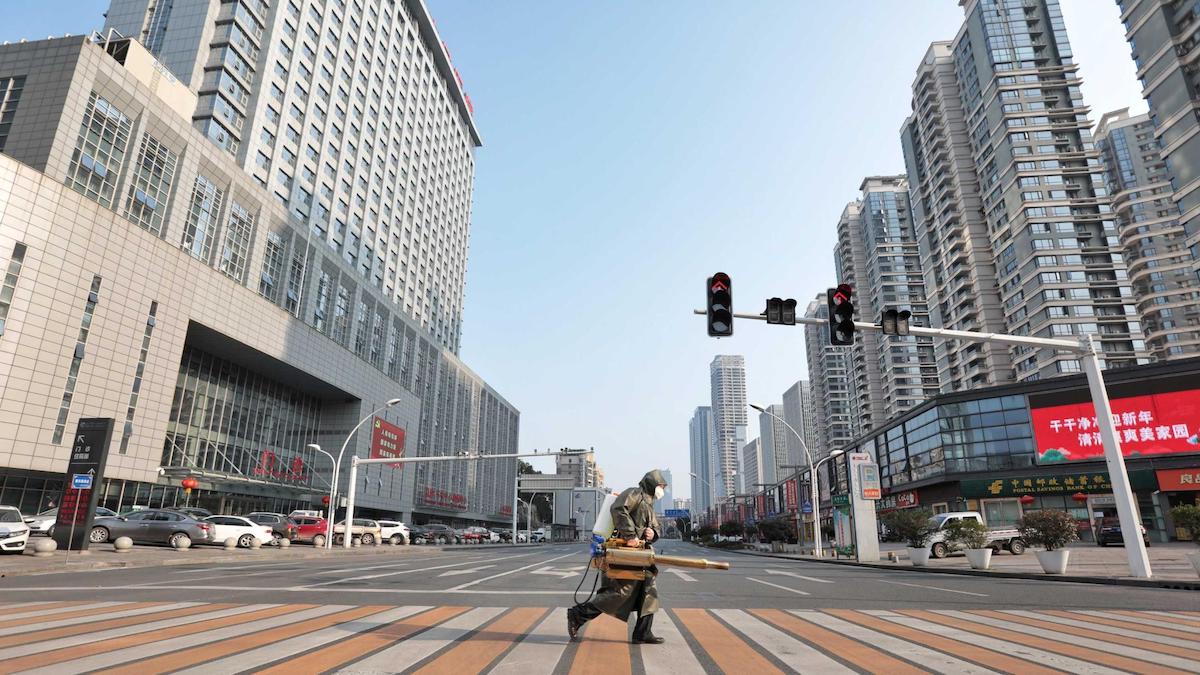Peeing in public isn’t usually a government-sanctioned activity. But a few weeks ago, Dutch officials lined up some not-so-private urinals in an Amsterdam park and invited local men to come and, well, partake. It was all in the name of the environment: Instead of sending urine straight down drains, the local water district wants to turn it into fertilizer for local farms.
Phosphorus extracted from the temporary park urinals will go to a green roof in the city. And today, the water utility will launch a new recovery plant designed to mine the phosphorus out of all of the wastewater in the region. Amsterdam’s pee alone can fertilize 10,000 football fields’ worth of plants, according to officials.
From our partners:
The idea all began because the phosphorus from urine was causing problems—it forms crystals, which were clogging local pipes. “We thought, if we have to remove it, why not do it in a proper way,” said Peer Roojimans, who serves on the board of the water authority. “Phosphorus is needed for survival for everything in life, but it’s a limited product, and the mines are exhausted. Since everyone takes it with us every day—and supplies it to our sewage treatment plant when we go to the toilet—we wanted to develop a device that could reuse it.”
After wastewater goes to the new recovery plant, the phosphorus and nitrogen from the urine will be separated, cleaned, and transformed into struvite, a slow-release fertilizer. New Dutch laws allow it to officially be used on farms starting on January 1 [2014].

Lest it seem that poo has been left out of the plan, Roojimans points out that the entire wastewater treatment plant for the Amsterdam area—which serves a million people—runs entirely on electricity that is produced from solid waste.
Though some question whether there’s a truly a phosphorus shortage in mines, it seems pretty clear that reusing it from waste is a better way to have a sustainable supply. And now Amsterdam residents can be proud to know they’re recycling every time they flush.
This feature adopted from FastCoExist.














